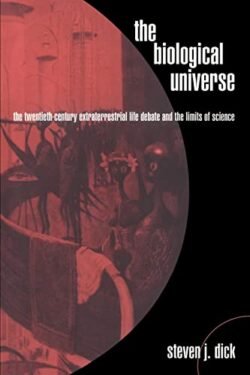While “The Biological Universe” does not follow a narrative plot, it is structured to guide readers through the historical and scientific journey of the extraterrestrial life debate. Dick begins with the early 20th century, when the possibility of life on Mars and other celestial bodies captivated the public and scientific imagination alike. He then moves through the century, detailing key developments such as the advent of radio astronomy, the discovery of extremophiles on Earth, and the launch of space probes that would explore the outer planets and their moons. Each chapter is dedicated to a specific era or breakthrough, examining the scientific methodologies employed, the findings, and the philosophical implications of these discoveries. The book also addresses the challenges and limitations inherent in the search for extraterrestrial life, including the technological, ethical, and epistemological hurdles faced by scientists.
Character Analysis
As a work of scientific history, the “characters” in “The Biological Universe” are the scientists, philosophers, and writers who have contributed to the extraterrestrial life debate. Dick offers insights into the lives and work of key figures such as Carl Sagan, Frank Drake, and others who have played pivotal roles in advancing the scientific search for life beyond Earth. Through these profiles, the book illustrates the passion, creativity, and sometimes controversy that have fueled the ongoing quest to answer one of humanity’s most enduring questions.
"The Biological Universe" is filled with thought-provoking quotes and analyses that reflect the complexity of the extraterrestrial life debate. While specific quotes are not provided here, Dick's writing emphasizes the idea that the search for extraterrestrial life is not just a scientific endeavor but a reflection of humanity's broader aspirations and fears. The closing chapters of the book consider the future of the search for extraterrestrial life, suggesting that the journey is as much about understanding ourselves as it is about discovering others in the cosmos.
In conclusion, “The Biological Universe: The Twentieth Century Extraterrestrial Life Debate and the Limits of Science” by Steven J. Dick is a significant contribution to the literature on astrobiology and the history of science. By examining the multifaceted debate over extraterrestrial life, Dick not only chronicles the scientific advancements of the 20th century but also invites readers to ponder the philosophical and cultural dimensions of our quest to find life in the universe. This work is an essential read for anyone interested in the intersection of science, history, and the enduring mystery of whether we are alone in the cosmos.
If the summary caught your interest,
Consider reading the full book on AbeBooks.
Explore this book on AbeBooks
